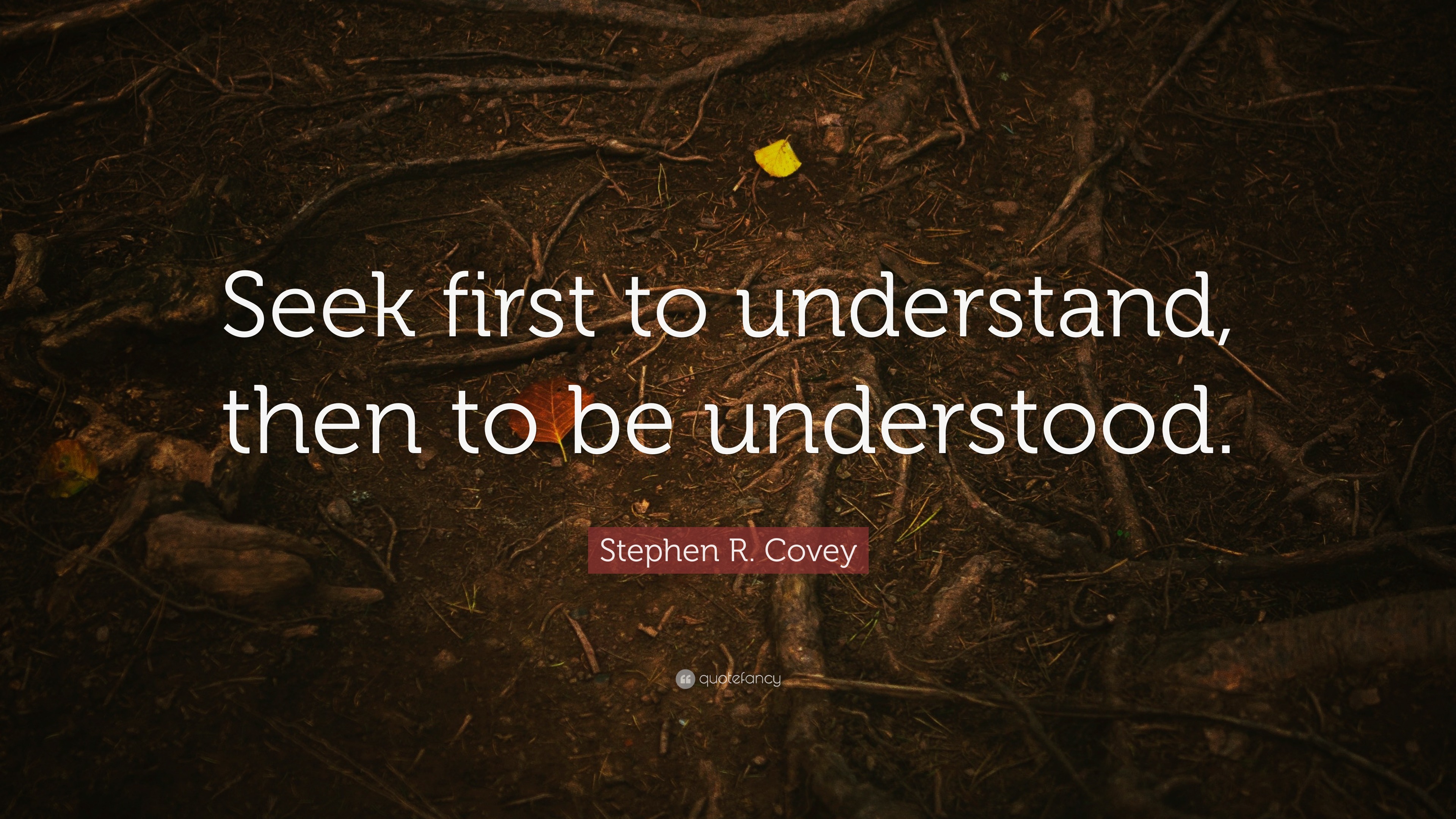
Our agenda remains important, but I believe the patient's agenda should always influence how we present our agenda.Īn anecdote may help make my points. If we have important things to explain to the patient, we should frame our concerns in the context of addressing the patient's agenda. Once we have understood our patients, then we can actively address those concerns. We should take time to understand our patient. We must respect those agendas and respond to those agendas.Ĭovey's words should influence each patient visit. Patients come to visits with their own agendas. While we may discover other important problems to address, we cannot completely succeed unless we address the patient's original concerns. If we do not understand the patient's concerns, then we cannot address those concerns. I suspect they truly care, because listening is hard work. They care (or least seem to care) about the patient's problems, and the context of those problems. The great physicians sit down, relax, and listen to the patient's story. How often do we emphasize this habit in the teaching of bedside manner? I have read many discussions of this habit. Stephen Covey's classic book, "The 7 Habits of Highly Effective People ," includes the 5th Habit – Seek first to understand – then to be understood. Physicians apparently are quick to control the conversation. Those classic studies document that physicians interrupt patient histories within 18 seconds (on average). This study recalls the studies of physician interruption. Rather they document the behavior, and find no apparent positive effect from this "self-disclosure." They suggest that the behavior can disrupt the physician patient relationship. They do not provide data on why physicians act this way. The study documents that physicians often talk about themselves rather than about the patient. We should note that these patients were new to the physician, and thus the "self-disclosure" did not follow from a continuous interaction. These episodes of self-disclosure did not improve the doctor patient relationship, nor were these disclosures therapeutic. Around one third of patient visits in that study included self-disclosure. This study of unannounced, undetected, standardized patients found that often physicians talk about themselves too much. While some may find their results surprising, I will argue that we should be able to predict and model good bedside manner.

Ī recent Archives of Internal Medicine article, "Physician self-disclosure in primary care visits enough about you, what about me? " examined one aspect of the doctor patient relationship. While we praise physicians with excellent bedside manner, we continue to have difficulty describing the features associated with excellent bedside manner despite a large and growing body of work on the subject. Patients often extol physicians who have great bedside manner. Great practitioners, while grounded in scientific principles, also excel in their interactions with patients.

The science of medicine continues to progress, and our patients benefit greatly from this focus on scientific knowledge and the application of that knowledge.īut medicine is not solely a science. We must understand medical science to understand diagnosis and treatment. Medical science dominates the curriculum. We spend much time in medical school learning cell biology, genetics, physiology, anatomy, pathophysiology, etc.


 0 kommentar(er)
0 kommentar(er)
